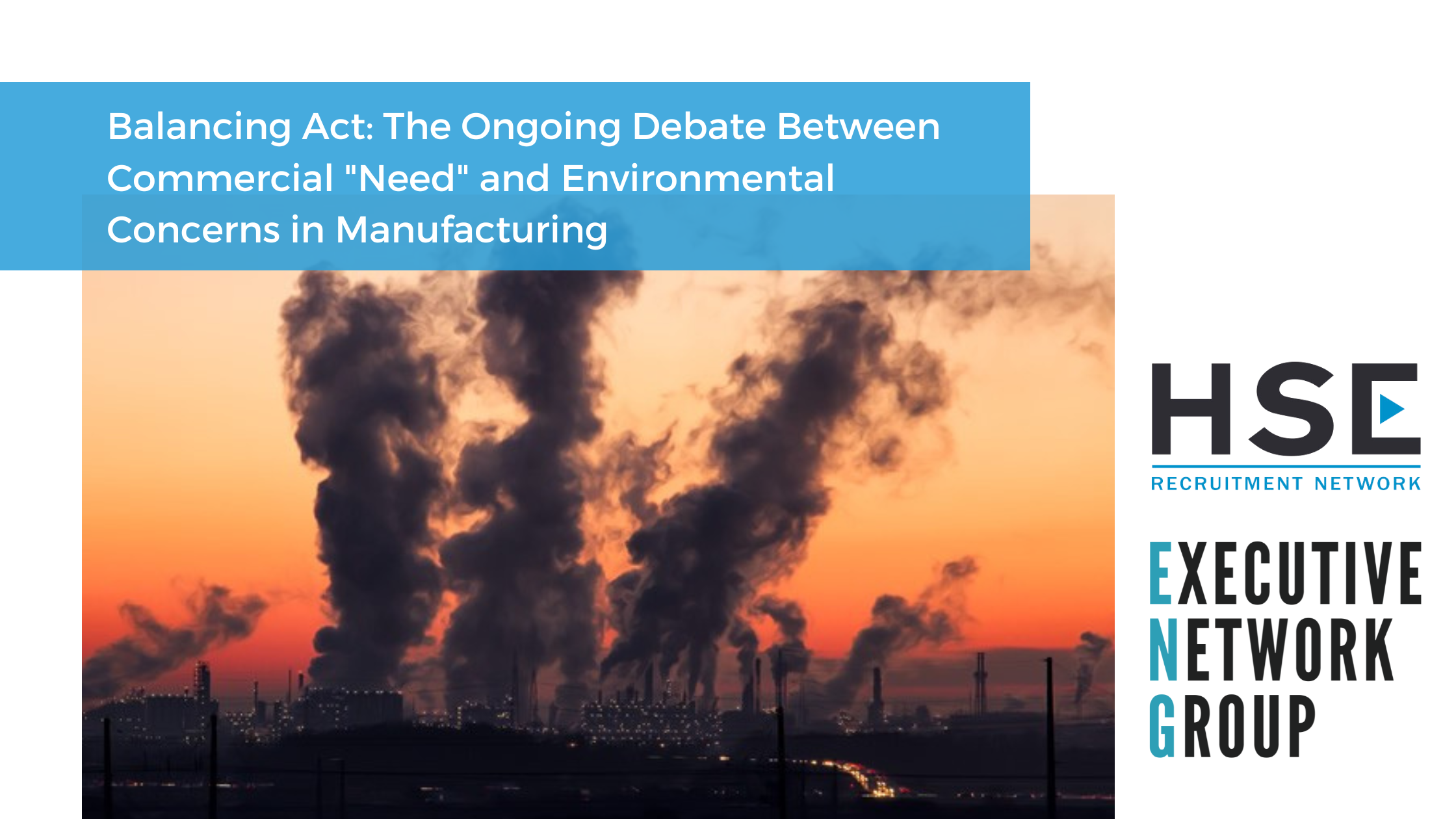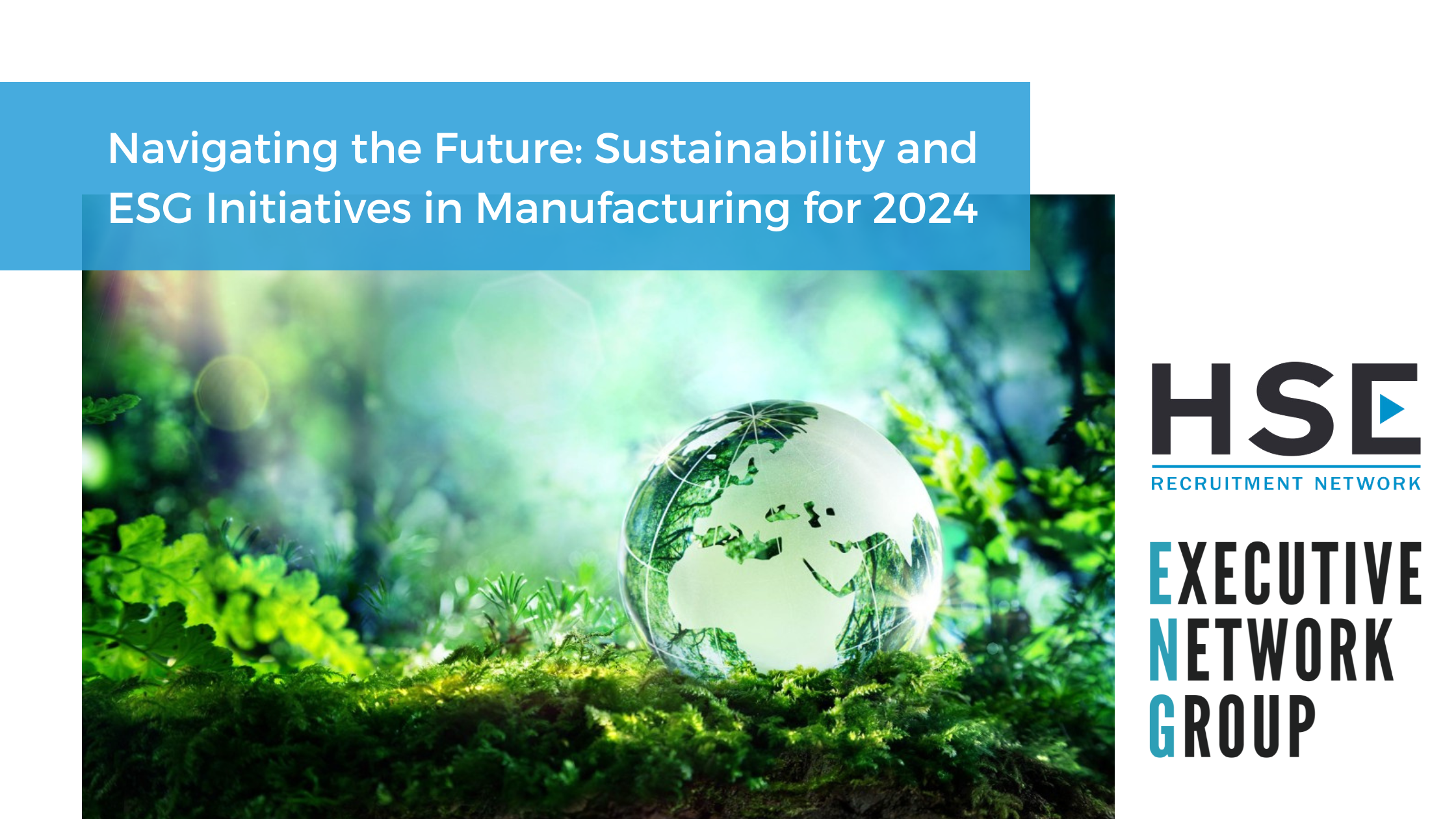Balancing Act: The Ongoing Debate Between Commercial "Need" and Environmental Concerns in Manufacturing

Following my article last week "Navigating the Future - Sustainability and ESG in 2024 within Manufacturing." My connection Richard Pike raised a great question, "Does commercial "need" still outweigh Environmental concerns in manufacturing businesses?"
In the realm of manufacturing, the tension between commercial imperatives and environmental concerns has long been a subject of debate. Historically, the belief was that economic growth and industrial progress took precedence over environmental considerations. However, as the world grapples with the escalating challenges of climate change and resource depletion, the discourse has shifted towards a more balanced and sustainable approach. This article explores whether commercial "need" still outweighs environmental concerns in today's manufacturing landscape.
Historical Perspective:
For decades, manufacturing companies operated under the assumption that economic growth and profitability were paramount, often leading to practices that prioritised short-term gains over long-term environmental sustainability. Pollution, resource exploitation, and inadequate waste management were common by-products of this approach.
However, the narrative began to change as scientific evidence highlighted the severe environmental consequences of unchecked industrial activities. Global initiatives, such as the Paris Agreement, underscored the urgent need for businesses to reassess their priorities and align their operations with sustainable practices.
The Shift Towards Sustainability:
In recent years, a growing number of manufacturing companies have recognised the importance of integrating environmental considerations into their business strategies. Regulatory pressures, consumer awareness, and the emergence of responsible investing have played significant roles in this paradigm shift.
External factors are also playing a big part in what businesses are planning for the future. Investors and customers are now looking at working with businesses that score higher on ESG. If companies aren't willing to adapt, they will fall behind competitors who are making changes. Government mandates regarding carbon reduction and tax relief policies are also making it more attractive for businesses to make the change, now more than ever.
Companies are increasingly adopting environmentally friendly practices, such as implementing cleaner production processes, reducing carbon emissions, and embracing circular economy principles. This shift is not solely driven by altruism but also by the realisation that sustainable practices can lead to operational efficiency, cost savings, and improved brand reputation.
Balancing Act: Current Trends:
While the manufacturing sector has made strides in adopting sustainable practices, the question remains: Does commercial "need" still outweigh environmental concerns? The answer lies in the ongoing struggle for balance. Many companies are navigating this delicate question by integrating sustainability into their core business models while maintaining profitability.
Some argue that prioritising the environment is not a luxury all businesses can afford, especially smaller enterprises with limited resources. However, advocates for sustainability contend that companies can no longer afford to ignore the long-term risks associated with environmental degradation, including regulatory penalties, reputational damage, and supply chain disruptions.
Innovation as a Solution:
The evolution of manufacturing technology offers a glimmer of hope for reconciling commercial needs with environmental concerns. Advancements in sustainable technologies, such as renewable energy integration, eco-friendly materials, and smart manufacturing processes, enable companies to reduce their ecological footprint without sacrificing efficiency or profitability.
Moreover, consumer preferences are evolving, with a growing demand for products that align with environmental values. This shift in consumer behaviour is compelling manufacturers to adapt their practices to meet market expectations, further emphasising the business case for sustainability.
The debate over whether commercial "need" still outweighs environmental concerns in manufacturing is complex and multifaceted. While historical practices often lean towards prioritising economic growth, the contemporary business landscape is witnessing a shift towards sustainability. The challenge for manufacturing companies is to find a delicate balance that integrates environmental considerations into their operations without compromising commercial viability. As the world collectively strives for a more sustainable future, it is increasingly evident that the long-term success of manufacturing companies is intricately tied to their ability to navigate this balancing act effectively.
I'd love to hear your thoughts, questions, and any ideas for my next article.
Ryan Evans - HSE Recruitment

